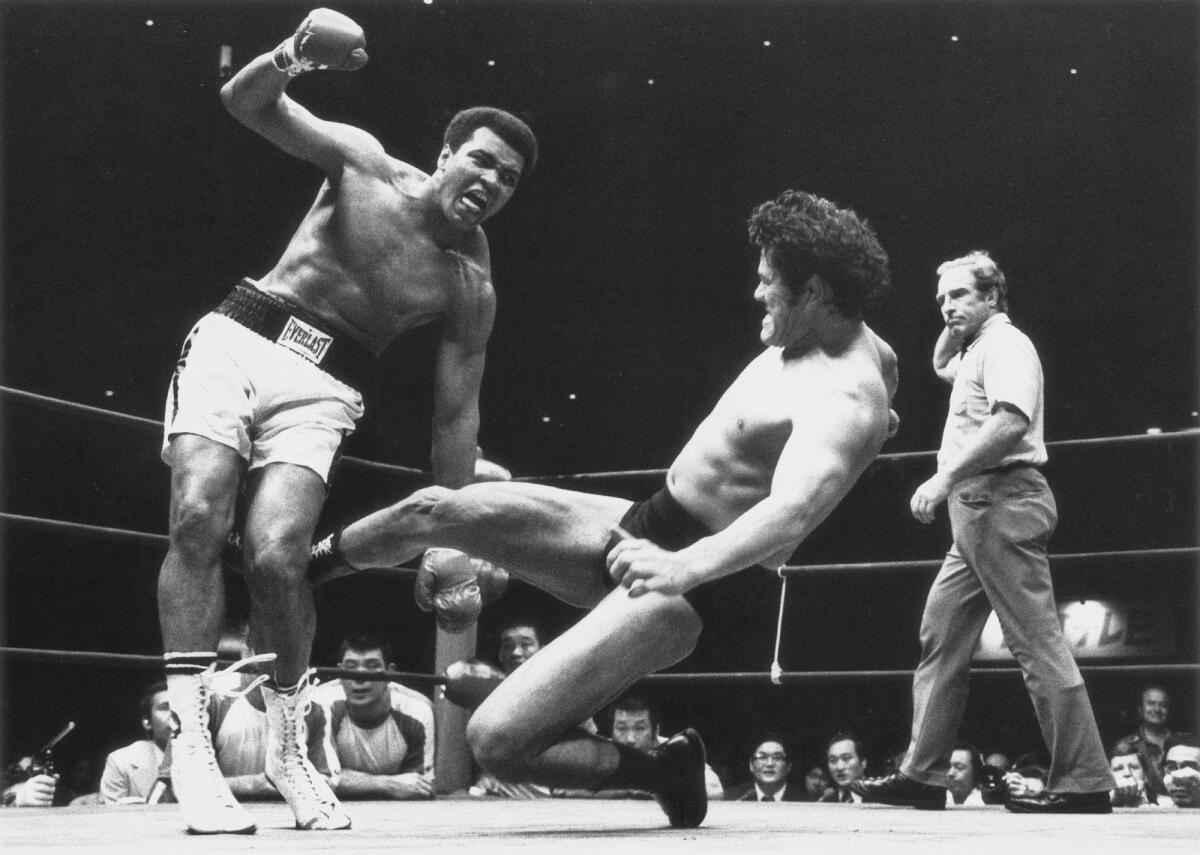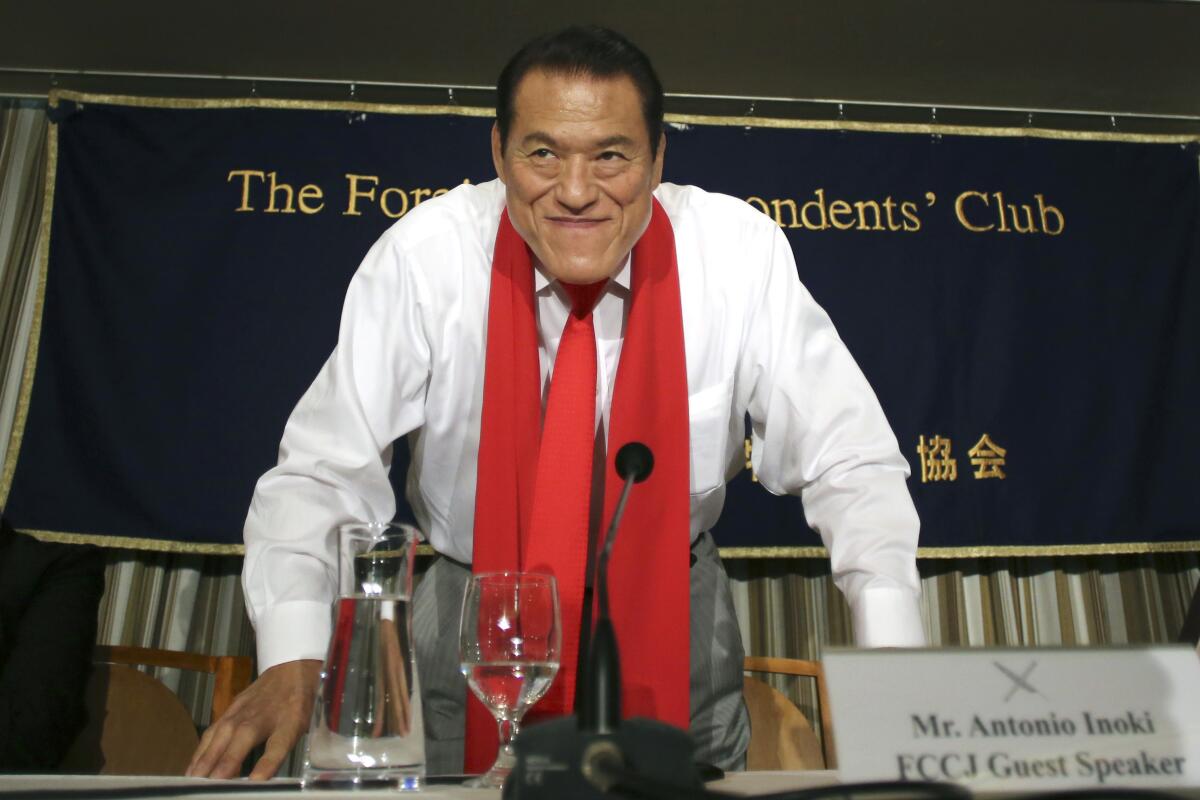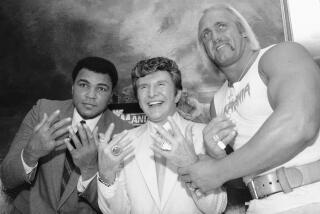Antonio Inoki, Japanese lawmaker and global wrestling icon who fought Muhammad Ali, dies

Popular Japanese professional wrestler and lawmaker Antonio Inoki, who faced a world boxing champion Muhammad Ali in a 1976 match that helped pioneer mixed martial arts as a huge spectator sport, has died at 79.
Inoki brought Japanese pro-wrestling to fame and pioneered mixed martial arts matches between top wrestlers and champions from other combat sports such as judo, karate and boxing.
Inoki, who was battling a rare disease called amyloidosis, died Saturday, according to the New Japan Pro-Wrestling Co., of which he was the founding president.
He rose to global fame in the sport in 1976 when he faced Ali in a mixed martial arts match at Tokyo’s Budokan hall, an exhibition match that many Japanese fans remember as “the fight of the century.”
To many of those outside Japan, however, the match was seen as unprofessional and not taken seriously. Inoki was mostly on the mat and kicking at Ali’s legs as the boxing champion circled around him menacingly.
Inoki was the first in his sport to enter politics. He promoted peace through sports and made more than 30 trips to North Korea during his time as a lawmaker in hopes of forging peace and friendship with the largely isolated nation.
Inoki was upbeat and in good spirits, even as he was fighting the disease. With his trademark red scarf dangling from his neck, Inoki last appeared in public in August on a TV show, in a wheelchair.
“As you can see, I’m pushing myself to the limit, and I’m getting power as I get to see you,” he said.
Born Kanji Inoki in 1943 in Yokohama, just outside Tokyo, he moved to Brazil with his family when he was 13 and worked at a coffee plantation. Inoki won local fame in shot put as a student, and he debuted as a professional wrestler at 17 while on wrestling tour in Brazil where he captured the attention of Rikidozan, known as the father of Japanese pro-wrestling.
Inoki made his pro-wrestling debut in 1960 and gave himself the ring name of Antonio Inoki two years later.
With his archrival, Japanese legend Shohei “Giant” Baba, Inoki made pro-wrestling a hugely popular sport in Japan. Inoki founded the New Japan Pro-Wrestling in 1972.

Inoki entered politics in 1989 after winning a seat in the upper house, one of Japan’s two chambers of parliament, and headed the Sports and Peace Party. He traveled to Iraq in 1990 to win the release of Japanese citizens who were being held hostage there. He also staged a pro-wrestling match in North Korea.
Inoki built a personal connection with North Korea over the years and visited the country repeatedly to help resolve Japan’s longstanding issue of past abductions of Japanese nationals to the North.
He retired as a wrestler in 1998, but remained active in politics until 2019.
An outpouring of tributes were posted on social media.
“A huge star has fallen. An era has come to an end,” tweeted Atsushi Onita, another wrestler who once served as lawmaker. Onita called Inoki “the great father of pro-wrestling” and added: “Thank you Inoki-san. I express my condolences from the bottom of my heart.”
Yoshifu Arita, a journalist and former lawmaker, praised Inoki for his effort to resolve the abduction issue with the North.
“Another important route with North Korea is lost,” Arita tweeted, as he criticized other former Japanese leaders for relying on “useless” connections and making no improvement. “Thank you for your hard work, Mr. Inoki.”
More to Read
Start your day right
Sign up for Essential California for the L.A. Times biggest news, features and recommendations in your inbox six days a week.
You may occasionally receive promotional content from the Los Angeles Times.






